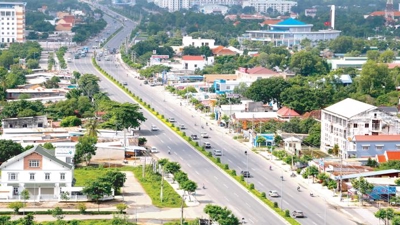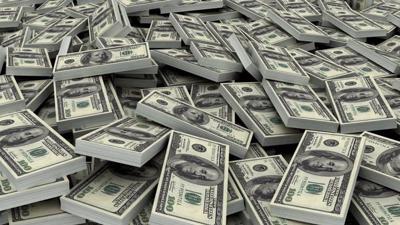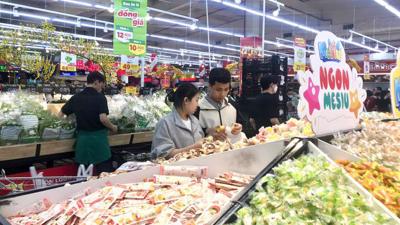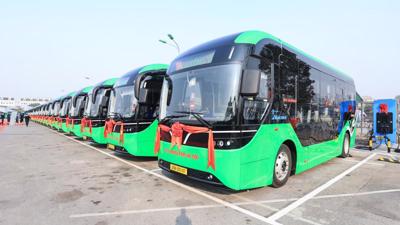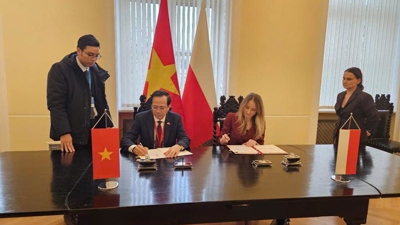Vietnam's Prime Minister Invokes The Spirit Of Dien Bien Phu To Overcome Challenges
In a rousing speech marking 70 years since the historic victory over French colonialists, Mr. Pham Minh Chinh rallied the nation to create "miracles of a new Dien Bien Phu" as Vietnam faces complex global headwinds.
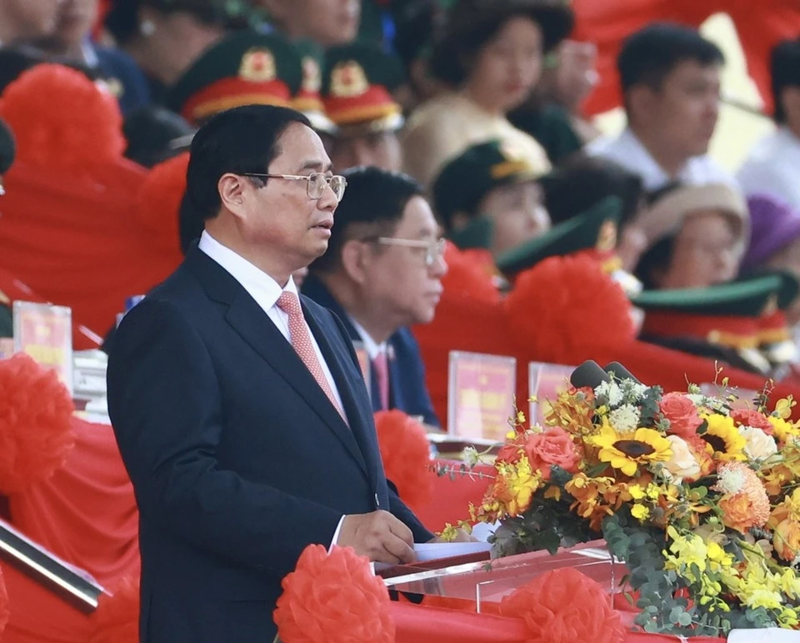
On May 7, a date forever etched in Vietnam's psyche, Vietnam’s Prime Minister Pham Minh Chinh delivered a speech commemorating seven decades since the seismic victory at Dien Bien Phu.
Amidst a jubilant atmosphere in the eponymous city, where an outnumbered Vietnamese force had defied the odds, he sought to rouse national pride and resolve, invoking the legendary tenacity that defeated French colonial forces in 1954 to confront contemporary challenges.
An immortal victory that shook the world
Mr. Chinh hailed the Dien Bien Phu campaign as "a brilliant victory" that breached "the stronghold of the colonial system of imperialism".
For 56 grueling days and nights, Vietnam's revolutionary army—lacking heavy weapons and logistics—surmounted colossal odds by "digging mountains, sleeping in underground tunnels" and slogging through muddy terrain to vanquish a formidable French foe with "heroic soldiers and modern weapons".
The improbable triumph over European imperialism resonated globally, inspiring anti-colonial uprisings worldwide and heralding the demise of Western dominion.
Paying tribute to martyrs whose "blood and bones" manured Dien Bien Phu's soil, the premier extolled this "pinnacle of victory" as the epitome of Vietnam's patriotic zeal and unflinching mettle forged over millennia under the tutelage of President Ho Chi Minh and General Vo Nguyen Giap.
He evoked searing memories of sacrifice—farmers abandoning ploughs, youths leaving schools—as an entire nation rallied behind the sacred cause.
"With the spirit of 'Nothing is more precious than independence and freedom'," tens of thousands overcame daunting logistical hurdles to forge "the combined strength to defeat all invading enemies."
The prime minister recounted how this archetypal people's war witnessed the Vietnamese showcasing their genius for asymmetric warfare.
Confronted by the French scheme to create an "invincible" bastion at Dien Bien Phu, President Ho Chi Minh and General Vo Nguyen Giap unleashed a tactical masterstroke—a high-risk, high-reward offensive to pulverize the enemy stronghold.
Preparatory maneuvers across three fronts forced French overstretched forces. Then, in the valley converged streams of porters, recruits and villagers hauling artillery pieces through treacherous terrain, wrong-footing their foes.
Holed up within their fortifications, the French garrison was bludgeoned into submission over 56 days as their bastions crumbled under the shelling. The battle's denouement sealed their empire's fate.
Hard-won peace and a rising nation
That seismic victory at Dien Bien Phu paved the way for peace talks, sealed by the 1954 Geneva Accords granting Vietnam's independence.
Yet it would take two more decades of bloodshed against American intervention forces before Vietnam finally reunified in 1975 following the momentous Ho Chi Minh campaign. Mourning its millions of war dead, the battered nation embraced socialism under the reunified Communist regime.
The Prime Minister made clear since embracing market reforms and international re-engagement from the late 1980s, Vietnam has shed the shackles of privation and isolation to undergo an astonishing metamorphosis.
From the ashes of war, it has soared as a middle-income country with per capita income of $4,300—a near 60-fold increase since "Doi Moi" liberal reforms began.
Its $430 billion economy ranks among the world's 40 largest, while trade volumes place it in the top 20 globally. Peacetime dividends have been invested in development, allowing Vietnam to meet most UN Millennium Development Goals.
Yet Mr. Chinh cautioned against complacency or hubris over such achievements.
While hailing Vietnam's "fortune, potential, position and prestige" unprecedented in its modern history, he underscored grave threats ranging from great-power rivalries and conflicts to resource scarcity, environmental perils, disruptive technologies and epidemics.
Likening the global landscape to a "complex, unpredictable" churn, he declared: "We absolutely must not be subjective, satisfied, or intoxicated."
He exhorted sustained efforts to reform and evolve—or risk squandering hard-won gains, an intolerable outcome for a nation forged through existential struggles.
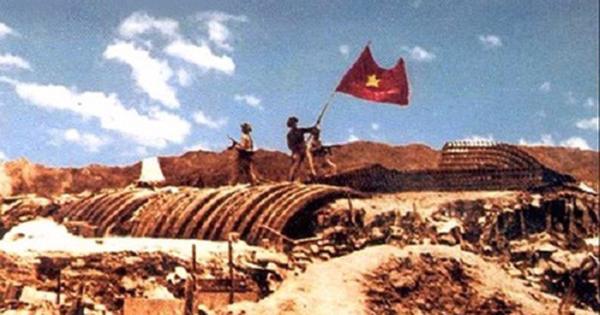
A blueprint to create "new Dien Bien Phus"
To navigate turbulent currents, the prime minister charted an ambitious blueprint invoking the fervor of bygone independence wars.
At its core lies developing an economy with deep international linkages yet rooted in self-reliance—the dual imperatives of "proactive integration" and "independence, self-reliance, self-reliance".
Priorities include nurturing innovation, green industries, digital transformation and urbanization to escape the middle-income trap. Progress must be socially equitable and environmentally sustainable, putting "people as the center, subject, goal and driving force"—not purely bald statistics.
Vietnam remains steadfastly committed to a socialist-oriented market economy animated by strategic breakthroughs in institutions, human capital and infrastructure. "We cannot sacrifice progress, social justice, social security and the environment to merely pursue economic growth," Mr. Chinh intoned.
The quest for higher living standards necessitates respect for "meritorious services" to the revolution, upholding patriotism and tapping the "desire to rise" among youth. Nation-building remains contingent on the "great national unity bloc" binding ethnicities and faith communities.
On security, Mr. Chinh reaffirmed Vietnam's polyvalent foreign policy rooted in independence and multilateralism without aligning too closely with any power bloc.
While boosting the People's Army and Police towards "modernity", he advocated peaceful coexistence and conflict-avoidance guided by the renowned "Four Nos" defense doctrine - no military alliances, no alignment with one country against another, no foreign military bases or use of territory to combat other countries, and no use or threat of force in international relations - all of which complements building "all-people" defense and security rooted in nationalism and deterrence capabilities.
Mr. Chinh’s sternest words were reserved for the political realm. The ruling Communist party and state bureaucracy, he declared, must be relentlessly cleansed of complacency, inertia and the "manifestations of self-evolution and self-transformation"—apparent references to graft and ideological deviation.
Capable, disciplined cadres steeped in Ho Chi Minh's austere revolutionary ethos of "plain living and high thinking" are vital to propelling Vietnam's renaissance, he said.
Party organizations and members must rededicate themselves to studying and working by these precepts while cracking down on ethics violations. The struggle against "negativity and corruption" is perennial, with exemplary conduct by officials a prerequisite to retaining public trust.
In a potent rhetorical flourish, the Prime Minister summoned the spirit of Dien Bien Phu to inspire today's generations. Just as their forebears prevailed despite meagre resources against overwhelming odds, modern Vietnam too could defy the sceptics and forge a prosperous, stable nation true to its heroic legacy.
"Let's stand shoulder to shoulder, side by side, determined to build our beloved country to be increasingly strong and prosperous, and for its people to have increasingly prosperous and happy lives," Mr. Chinh thundered.
Harking to Ho Chi Minh's famed call: “No task too great, no goal too far. Fear falters where a strong heart gleams. Mountains move and oceans part. When will unyielding lights our dreams,” he implored defiance of difficulties through "intelligence, faith and patriotic ardor".
Just as colonial foes were vanquished by extolling the "will to save the country rising like a rising tide and cascading waterfall", contemporary Vietnamese must channel their forefathers' tenacious devotion.
The speech aimed to instill a sense of destiny - one demanding stoic grit, disciplined unity and ideological clarity to create those very "miracles of a new Dien Bien Phu" required for Vietnam to flourish amidst 21st-century headwinds.
Marrying revolutionary zeal to pragmatic reforms is the need of the hour. Past heroes sacrificed everything for independence; their inheritors must rededicate energies to entrenching sovereignty through sustainable development that uplifts all.
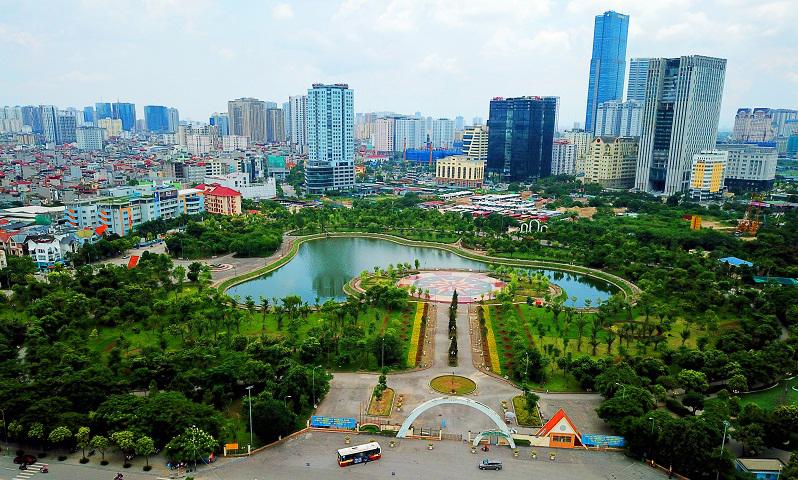
From Battlefield Victory to Economic Triumph?
It remains uncertain whether the Communist party, with its deep roots in military history, can genuinely harness the dynamism, accountability, and pragmatism necessary to achieve Mr. Chinh's vision.
Despite rhetoric championing emulation of patriotic predecessors, the regime has been plagued by pervasive corruption, nepotism, and ideological stagnation, impeding reforms in recent years.
This has been underscored by the dismissal of two presidents and a legislative body chairman for wrongdoings, all within a single year.
Compounding matters are festering territorial disputes with China over the Paracel and Spratly islands in the South China Sea.
Any confrontation could imperil major maritime trade flows through regional chokepoints and disrupt supply chains upon which Vietnam's export-oriented economy depends.
Managing relations with the US, its largest export market yet also a partner to regional rivals, demands deft diplomacy from Hanoi.
Yet few can dispute the enduring potency of invoking Dien Bien Phu's intoxicating aura as a rallying cry for Vietnam's contested journey into an uncertain future.
Seven decades after shaking off the shackles of colonialism, the nation has re-emerged from the ruins of war as a development success defying skeptics. Whether it can reproduce military heroics in the economic arena remains Vietnam's defining challenge of the 21st century.
By channeling Dien Bien Phu's indomitable legacy, Mr. Chinh aims to rekindle a priceless intangible asset—the fervor that propelled an outgunned peasant army to improbable glory.
His speech's refrain of creating "new Dien Bien Phus" positions overcoming today's obstacles as the latest battle in an eternal struggle towards sovereignty and prosperity.
How history judges these invocations depends on whether the current generation of Vietnamese leaders can indeed distill their forefathers' spirit into the audacity, innovation and pragmatism required to surmount new headwinds.
Failure would risk squandering independence's precious dividends. Success could finally exorcise the ghosts of conflict once and for all—allowing a proud nation to realize its boundless potential in an era of peace.


